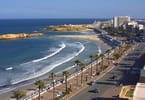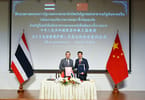The number of Australians to have had their passports cancelled on national security grounds has plummeted, possibly because the security agencies have successfully targeted many of the potential threats.
The sharp drop in security-related passport cancellations comes despite an overall increase in the number of people traveling to foreign hotspots such as Syria to participate in the conflict.
Passport cancellations have been used to great effect by security agencies to ground so-called terror tourists — Australian citizens travelling to conflict zones such as Syria, Lebanon, Afghanistan or Somalia to train or fight with insurgents.
But in the past two years the number of Australians whose passports have been cancelled on national security grounds has fallen sharply.
In 2008-09, 19 Australians lost their passports on suspicion that they had done, or would commit, a serious foreign offence overseas.
That figure leapt to a high of 51 in 2009-10, partly due to a change in the way the process was conducted, which cleared a backlog.
But in 2010-11 the figure fell to nine, before falling to three in 2011-12. Since then, there have been none.
Among those subject to cancellation were Australians on the run after being accused of serious crimes in foreign jurisdictions and whose passports had been cancelled at the request of local authorities.
A spokesman for Foreign Minister Bob Carr said there was no definitive explanation for the decline, but he suggested it may be because most potential trouble-makers had already been targeted.
“It has been suggested that the reason for the decline is that the previous successful actions have reduced the pool of candidates for whom passport cancellation may be required under the act,” the spokesman said.
“It takes time for the pool to replenish. There are only so many Australians for whom the intent or actuality of committing a serious foreign offence may apply.”
As reported by The Australian, security agencies believe more than 100 dual citizens may be participating in the Syrian conflict. At least three have been killed and another three detained by Bashar al-Assad’s regime.
Australia National University professor Clive Williams said the emergence of new threats and theatres of conflict may be another reason why fewer Australians were having their passports cancelled.
He said ASIO’s intelligence on individuals aiming to travel to relatively new conflict fronts, such as Syria or Somalia, may not be as good as on traditional threat areas, such as Afghanistan.
“Maybe the Syrian conflict has appealed to a broader number of people in the Muslim community, in which case ASIO might not have such good intelligence,” Professor Williams said.
“I suspect most of their intelligence is focused on a small number of people in the Lebanese Muslim community.”
WHAT TO TAKE AWAY FROM THIS ARTICLE:
- The sharp drop in security-related passport cancellations comes despite an overall increase in the number of people traveling to foreign hotspots such as Syria to participate in the conflict.
- He said ASIO’s intelligence on individuals aiming to travel to relatively new conflict fronts, such as Syria or Somalia, may not be as good as on traditional threat areas, such as Afghanistan.
- “It has been suggested that the reason for the decline is that the previous successful actions have reduced the pool of candidates for whom passport cancellation may be required under the act,”.






















